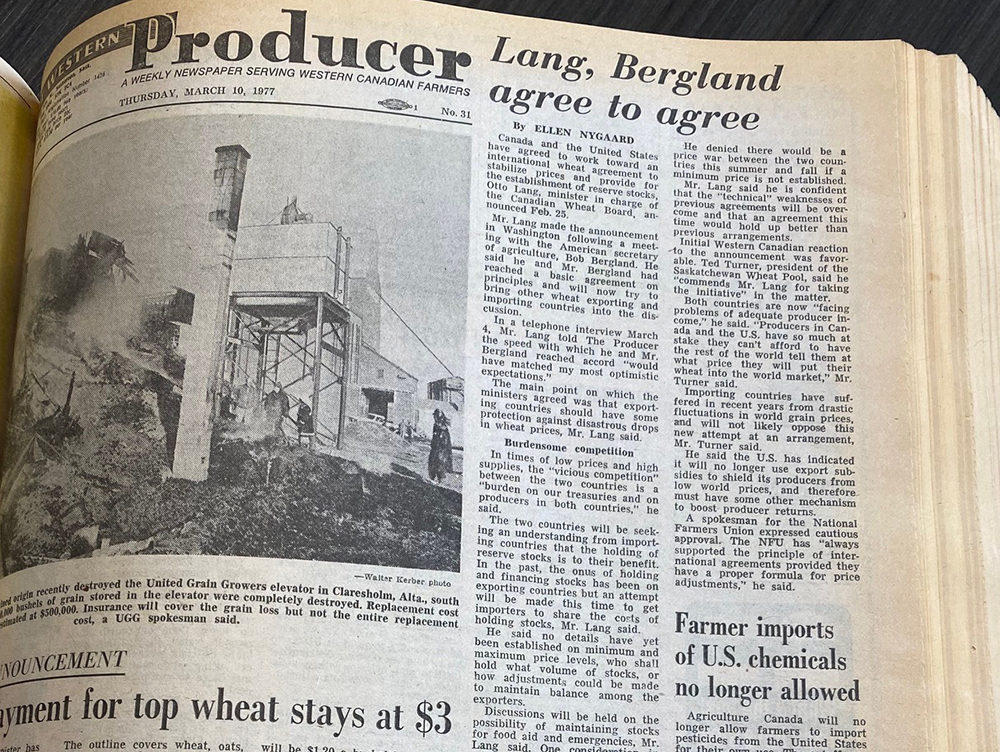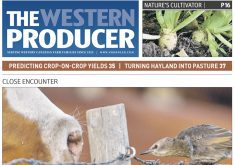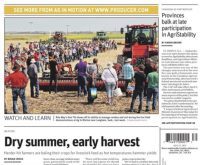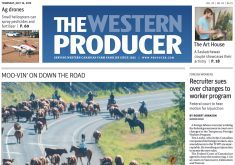For the next year, this column will mark The Western Producer’s 100th anniversary by taking a deep dive every week into a past issue of the paper.
The March 10, 1977, issue had a headline worthy of a journalism award.
The story was from the Christian Science Monitor wire service about how successful Australia had been in its efforts to convert the country to the metric system.
The headline? “Australians don’t pussymetre around.”
Nice one.
Speaking of the metric system, it came under fire in a letter to the editor that was one of 12 published in this issue.
Read Also

Worrisome drop in grain prices
Prices had been softening for most of the previous month, but heading into the Labour Day long weekend, the price drops were startling.
Other letters defended research checkoffs, opined on Quebec separatism and protested plans by a federal crown corporation to build a uranium processor north of Saskatoon.
Much of the letters-to-the-editor section, however, was focused on compulsory seatbelt use. Four letters were dedicated to opposing the move, which seems laughable now, but it was a big deal back then.
I can remember being a bit miffed myself as a teenager when the new rules were introduced in Saskatchewan.
I’m assuming there are still people who won’t use them, but you don’t see a lot of letters to the editor venting that opposition.
The CBC set off a firestorm of its own in the pages of the Producer when it ran a radio show on Feb. 22 called What Breadbasket?
It argued that the Canadian grain industry had fallen behind its major competitors for two reasons:
- It was antiquated, inefficient and inadequate to meet the challenges of moving grain from farmer to customer.
- It was strongly institutionalized, dominated by the government, the Canadian Wheat Board and farmer-owned pools.
The Producer was not amused, editorializing its displeasure in the previous issue.
This week it was Gerald Sperling’s turn.
The assistant political science professor from the University of Regina wrote that the documentary was “biased, distorted and full of half truths to the point that if one didn’t know better, one might have concluded that this was an hour-long paid commercial for the inland terminal, free market, multinational grain trade lobby.”
So there.















